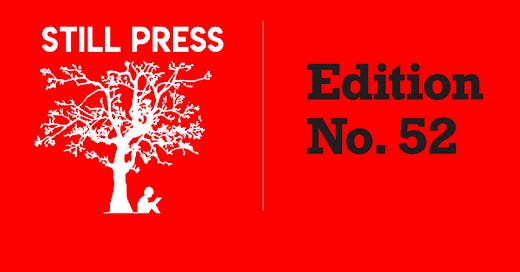Happy New Year!
The most likely New Year’s resolution is some combo of get-in-shape and lose weight; worship of a sculpted physique is at least as old as ancient Greece. That’s why I thought a special treat would be a season #3 New Year’s Day encore podcast, the link is here, with Matt Reynolds, CEO and founder of Barbell Logic. Matt’s story is both about how to get stronger and how a phone can disrupt an industry.
Given the word “barbell” is in his company’s name, it’s perhaps unsurprising that Matt can lift very heavy things. For a while, he made a name for himself tugging trucks with his teeth, a link to body building’s vaudeville roots. At that time, he was working as a teacher. Lifting was a hobby that, in his words, seemed “niche.”
Then Matt got the idea he could share his understanding with regular folk. Matt began “proselytizing the value of strength as a quality-of-life improvement.” You can see a video of Matt talking here. In our conversation, he tells the story of an elderly woman who could not easily get out of a chair when he met her but was slowly transformed by lifting, regaining functions she had thought were permanently lost. Hearing Matt’s story made me want to lift heavy things, too.
There is an economic angle to Matt’s story as well. There are roughly 340,000 personal trainers in the US. That’s about three trainers for each of the U.S’s 100,000 gyms. By definition, most of these trainers are mediocre, average. Matt’s business is aimed at connecting clients with great trainers, giving coaches something they once lacked: scale. You film your lifting session and send it to your coach. Each of you can be anywhere.
Disruptions create new disruptions. An iPhone was the pre-condition not only for Waze but Matt’s company. While the trade of what economists call “goods” (think factories) got disrupted decades ago, the services industry (like coaching) is only now getting going. Matt’s company was founded in 2016. How many of those 340,000 trainers do we need if Matt’s business does well? How many of the services—education, tax preparation, legal-- can be offered for less cost and higher quality remotely?
Education is a biggie. There are certain foundational building blocks to social cohesion--a shared alphabet, religion, news source and curriculum. These institutions are all resistant to change, but under enough pressure, they give way. Yet, the core of my children’s public education wasn’t that different from what I experienced in the 1970s. To date, education hasn’t been meaningfully disrupted.
Disruption occurs at the edges at first. You fire the local trainer and hire Matt. You skip after-school tutoring and do it yourself (better, cheaper) with Khan Academy. Bigger changes are likely afoot. Higher education, particularly the most expensive institutions, look like juicy targets. As always, something is lost, and something is gained.
Living through this much change is exciting and disorienting. The disorientation is big enough that I want to write a follow-up post on the topic more broadly. I’m also going to host an “ask me anything” for subscribers to get a better sense of what’s on your mind. (Subscribers have already asked me to write an update on China and energy markets).
For today, however, revel that we all made it into another year. Also, we will not be publishing next week, spending the time instead lining up guests for season #4 of the podcast. Thanks as always for your support and interest.
Happy New Year from me and the rest of the Still Press team.




